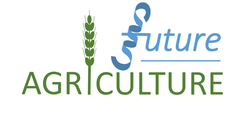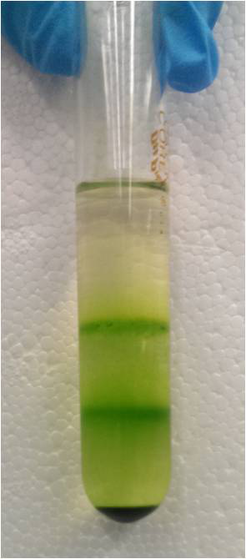EU support of new technologies to increase photosynthetic CO2-fixation
5 Million Euro for future plant breeding

In the face of an increasing global population the productivity of agriculture needs to be considerably improved. However, traditional plant breeding techniques are reaching their limits. Therefore, out-of-the-box solutions are required to support a new green revolution. Together with five partners from academia and industry the group of Tobias Erb will pursue new approaches by re-wiring the metabolism of cyanobacteria and plants with synthetic biology to enhance their growth rate and yield.
The 5-years project “FutureAgriculture” is funded with 5 Million Euro by the European Commission’s Future and Emerging Technology Open program, which supports the development of new unconventional and visionary ideas with long-term potential. In the current application period 12 out of 670 submitted projects were selected for funding.

In the FutureAgriculture project, photosynthetic CO2-fixation will be improved in the reaction tube using computational methods and enzyme engineering. The optimized pathways will be transferred into selected model organisms to test the effects on photosynthetic yield and productivity.
Shown is a solution of isolated chloroplasts from green algae (Credits: Tarryn Miller, MPI Marburg).Tobias Erb’s team at the Max Planck Institute of Terrestrial Microbiology and his research partners will work on improving the yield and rate of carbon fixation in cyanobacteria and plants, which is often the limiting part of photosynthesis. Specifically, the team will focus on a process termed photorespiration, in which up to 20% of the photosynthetic energy and fixed carbon is lost, thereby limiting growth. By evolving new enzyme chemistries, the scientists aim at engineering new pathways that avoid the negative effects of photorespiration.
The research project is structured into four phases. First, promising candidate pathways will be identified by computer analysis and modeling. The most effective pathways – the shortest and most energy-efficient ones – will be evolved and constructed in test tubes. Next, these pathways will be integrated in single-cell bacteria and algae. For this purpose, Echerichia coli and Synechocystis, two model organisms in biology, will be used. In the last phase the most efficient pathways will be introduced into higher plants, followed by a detailed analysis and characterization.
The interdisciplinary project started at January 1st 2016 and is coordinated by Dr. Arren Bar-Even (Max Planck Institute of Molecular Plant Physiology, Golm). Besides Tobias Erb, the other partners involved are Dr. Patrik Jones (Imperial College London, UK) and Prof. Dan Tawfik (Weizmann Institute of Science, Israel), as well as two companies, Evogene (Israel) and IN S.r.l. (Italy).
The Max Planck Institutes
The two Max Planck Institutes belong to the Max Planck Society, Germany's most successful research organization in the field of basic research.
The mission of the Max Planck Institute for Terrestrial Microbiology is to understand how microorganisms function at the molecular, cellular, and community level. At the Center of Synthetic Microbiology (SYNMIKRO), synthetic biology approaches are used to understand and engineer microorganisms.
The Max Planck Institute of Molecular Plant Physiology investigates metabolic and molecular processes at different levels in plants. The overall goal is to understand how metabolism and growth are regulated and to learn how they respond to different factors.
The Imperial College London
Imperial College London is a science-based university. The Faculty of Natural Sciences research strategy is to meet the changing needs of society, industry and healthcare, and to address the global challenges of climate change, energy, global health and security.
The Weizmann Institute of Science
The Weizmann Institute of Science is one of the world’s leading multidisciplinary basic research institutions in the natural and exact sciences. The Faculty of Biochemistry research focuses on the processes of life at the levels of molecules, cells, organs, organisms and ecosystems.
Evogene
Evogene is specialized in improving plant traits through applying biotechnology and advanced breeding for a wide variety of crops. Their main focus is on the discovery of genes, linked to traits, such as improved yield and drought tolerance.
IN S.r.l.
IN S.r.l. is an agency whose mission is to support private and public organizations in participating in EU, national and local innovation projects and to provide professional project management services.













